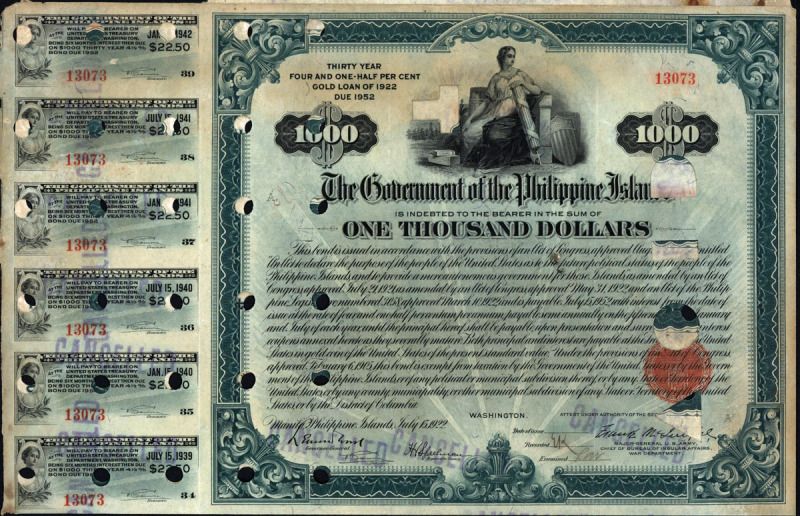What are BONDS?
By Randell Tiongson on September 19th, 2012With all the attention the stock market gets latelty, you would think that they would be the bulk of investments being made in the Philippines, right? Not really. Bulk of investments in this country are credit instruments like Bonds. I guess it’s high time to post about fixed income or bonds in this blog.
What are bonds? Bonds are contracts in which an investor lends money to a borrower. As compensation for receiving the money, the borrower agrees to pay interest, often twice a year and generally of a fixed amount. The borrower also agrees to repay a stated sum at the end of a fixed period. The date that the loan is to be repaid is called the maturity date.
Bonds issued by a sovereign state are known as Government Securities. It is usually considered zero or minimal risk because the government backs the indebtedness. In the Philippines investment scenarios, majority of fixed income investments are done through government securities. However, there are some investment grade bonds issued by top corporations such as PLDT, Ayala Corp., San Miguel Corp., SM, etc. Obviously, the risk associated with corporate bonds are higher than those issued by the government, hence one can expect higher yields from corporate bonds.
Bonds of high-quality companies are considered safer than most of investments for the following reasons:
1. The annual income to be received is generally fixed in advance
2. The contracted – for loan principal is likely to be repaid in full at the stated due. In the even financial difficulties, the borrower will have to comply with the terms of the contract. Interest and principal will be repaid on time or the company will be faced with bankruptcy. Should bankruptcy occur, bondholders have priority in receiving the proceeds from liquidation of business assets and are therefore repaid before stockholders receive any material proceeds.
In general, Bonds are:
• Notes and bonds are debt securities issued by borrowers. These debt securities are also referred to as fixed income securities since they give coupon or interest payment on a regular or a fixed basis. Basically, these are “IOUs”.
• Technically, the term “bond” is used for securities with tenors of more than 10 years while “note” is used for securities with tenors of less than 10 years.
• Treasury Bills – Government Securities traded at discount to FV, One year or less
• Commercial Papers –Similar to T-Bills, except as to ISSUER
Bond prices will vary throughout its lifetime and are largely dictated by market prices. Generally, Bond prices are affected by supply and demand, prevailing interest rates, credit standing of the issuer, the economy and other factors.
If Bonds are deemed as fixed-income securities, why do prices fluctuate? Basically, bond prices fluctuate because they could be traded in the secondary market, which ultimately determines the value of a bond based on supply and demand & market forces.
You can invest directly in bonds by buying them or through managed funds that invests primarily in bonds like “Bond Funds”.
Hope this helps!
Catch me at No Nonsense Seminar on Finance: How to Invest for the Future, presented by Sun Life Prosperity Funds. It’s my investment seminar and it will be held on Sept. 22, 2012 at the Legend Villas, Pioneer St., Mandaluyong City. For inquiries, send email to [email protected] Details HERE



are you selling book titled top 10,000 corporations 2012 ?
thank you.